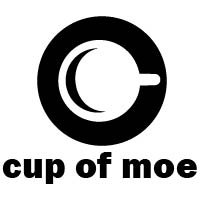We may earn money or products from the companies mentioned in this post.
Director Ari Aster’s sophomore film “Midsommar” follows up a tour de force in 2018 arthouse horror flick “Hereditary.” As with his debut film, 2019’s “Midsommar” offers a taut, thought-provoking, emotionally-charged narrative. Beautifully rendered, it’s a lush, haunting tale which suffers occasional predictability.

Shortly after arriving at the Hårga, Pelle’s familial commune, the group meets a British couple Simon (Archie Madekwe) and Connie (Ellora Torchia) along with Pelle’s brother, Ingemar (Hampus Hallberg). Ingemar shares psilocybin which Dani reluctantly accepts, causing her to hallucinate about her deceased sister. While the Hårga at first appears idyllic, strange events begin transpiring, beginning with a ritual suicide of two elders.
Like Aster’s debut film “Hereditary,” “Midsommar” glistens with superb filmmaking. Whereas many movies feature a prominent soundtrack, “Midsommar” instead relies mostly on dialogue with its sparse score, masterfully crafted by Bobby Krlic, occasionally punctuating the auditory landscape. Cinematography is top-notch. While driving to the Hårga, the camera pans over the car in arc to film upside down in a shot as foreboding as the trek to the Overlook Hotel at the beginning of “The Shining.” Costume design and set design glows, with each intricate detail seemingly significant.
There’s much to unpack, particularly regarding human connection. “Midsommar” remains grounded with a concentration on trauma. Dani grapples with her sister’s suicide, and struggles with her increasingly-detached boyfriend. “What if I’m scaring him [Christian] off?” Dani wonders to a friend. Yet it’s not that Dani’s being needy. She merely seeks fundamental relationship essentials. Christian, Josh, and Mark however are so emotionally-stunted and lost in the abstraction of academia that they’re ultimately unphased during even a ritual suicide. Contrastingly, the Hårga focuses on a shared communal experience. This manifests in shared emotional expressions such as breathing and crying.
While it’s akin to “Wicker Man,” Aster’s hallucinatory cinematic infuses plenty of shocking comedy. Unsettling scenes foster genuine laughter at the sheer absurdity of what’s transpiring on-screen. “Midsommar” beautifully weaves horror, comedy, and drama into a cleverly-chiseled, taut thriller. Despite its magnificence, “Midsommar” is plagued by predictability. A tapestry depicts a love story which bluntly illustrates future events. Likewise, decorative wallpaper suggests a grisly finale. For all its build up, “Midsommar” largely fails to surprise. Its gruesome end is less shocking, and more shock value.
Moreover, its characters are illogical to a fault. after the senicide, only Dani, Connie, and Simon appear perturbed. Christian and Josh rationalize it with an anthropological disengagement. Then, when Simon and Connie decide to leave, Simon suspiciously disappears. A member of the Hårga explains that the truck is a two-seater, adding “We don’t break traffic laws” to clarify why one couldn’t sit on the other’s lap. In the face of progressively strange situations, it’s only Dani who appears wary. Academic detachment slips into one-dimensional characters. Dani’s final choice in the harrowing third act feels only partially reconciled. Where “Midsommar” doesn’t concern itself with probing the rationale of its characters and their choices.
“Midsommar” is at once a break up film, horror flick, and comedy rolled into one. Visually stunning, Ari’s tour de force explores human trauma and the effects of isolation. It’s unconcerned with analyzing causes. The ambitious “Midsommar” occasionally gets lost in its grand vision, but it remains a fresh, thought-provoking, arthouse horror film.
This post may contain affiliate links. We are a participant in affiliate programs such as the Amazon Services LLC Associates Program, an affiliate advertising program designed to provide a means for us to earn fees by linking to Amazon.com and affiliated sites. However, all products are thoroughly tested and reviews are honest and unbiased.
